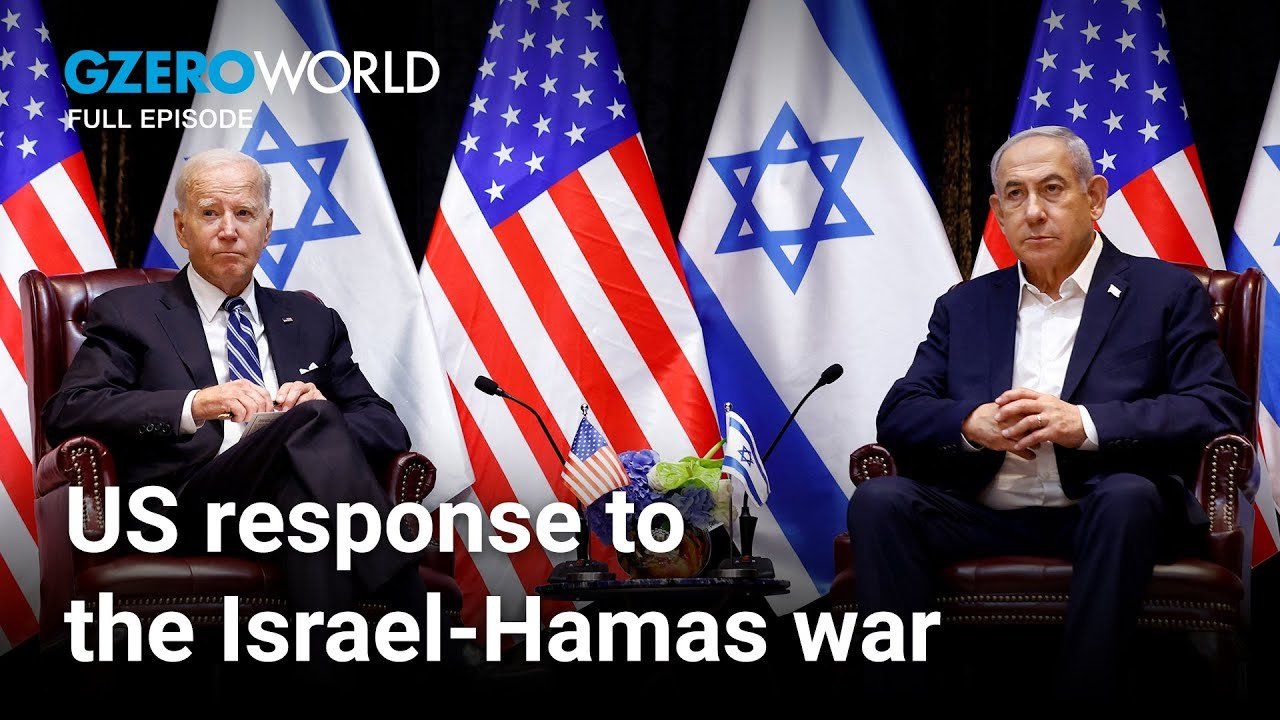
As the death toll mounts in Israel’s war with Hamas, Ian Bremmer looks at the role the US government should play in the conflict and whether that role is as clear-cut today as it was right after the attack on October 7. President Biden made a politically and personally dangerous trip to Israel this week, showing solidarity for America’s closest ally in the Middle East. But the administration must walk a fine line between supporting Israel’s right to defend itself and preventing the humanitarian crisis in Gaza from spiraling out of control.
On this episode of GZERO World, we get the view from both sides of the aisle on Capitol Hill, first with Senator Chris Murphy, the Connecticut Democrat who sits on the Senate Foreign Relations Committee, and then with Republican Representative Mike Waltz of Florida, a member of the House Foreign Affairs committee.
Also: a dispatch from Lebanon. A little over 50 miles from the Israeli border, there are few signs of the violent conflict capturing the world's attention. For now, at least. Further south, there have been almost daily exchanges of rocket fire between the Israeli Defense Forces and Hezbollah, the Iran-backed militant group that dominates southern Lebanon and is a regional power in its own right. GZERO correspondent Fin DePoncier is in Beirut to hear from its diverse population about what they think about their country's precarious position and what it would mean if Lebanon gets dragged into Israel's war with Hamas. Some people see themselves as entirely removed from the conflict, and others would pick up arms to fight, but everyone is bracing for the worst. For now, all eyes are on Hezbollah and the southern border.
Catch GZERO World with Ian Bremmer every week at gzeromedia.com/gzeroworld or on US public television. Check local listings.
- The Israel-Hamas war: Where we are, two weeks in ›
- World powers weigh in on Israel-Hamas War ›
- US and Canada respond to Israel-Hamas war ›
- Israel-Hamas War: The race to avert escalation in the Middle East ›
- Ian Bremmer: Understanding the Israel-Hamas war ›
- What kind of leverage does Biden really have with Bibi? ›
- Biden seeks urgent aid package for Israel, Ukraine ›
- What we know (and don't know) about Iran's role in the Israel-Hamas war - GZERO Media ›
- Israel-Hamas war: Biden's second foreign policy crisis - GZERO Media ›
- Israel-Hamas war: "Just bring them back," says brother of 9-year-old Israeli hostage - GZERO Media ›
- Israel-Hamas war set to expand & directly involve US - GZERO Media ›
- Israel’s geopolitical missteps in Gaza - GZERO Media ›
- Yuval Noah Harari on the perils of viewing Israel-Palestine through the 'victimhood' context - GZERO Media ›